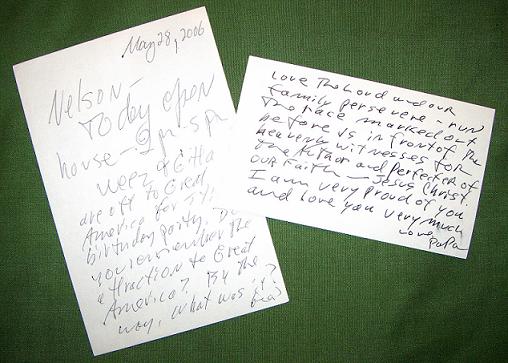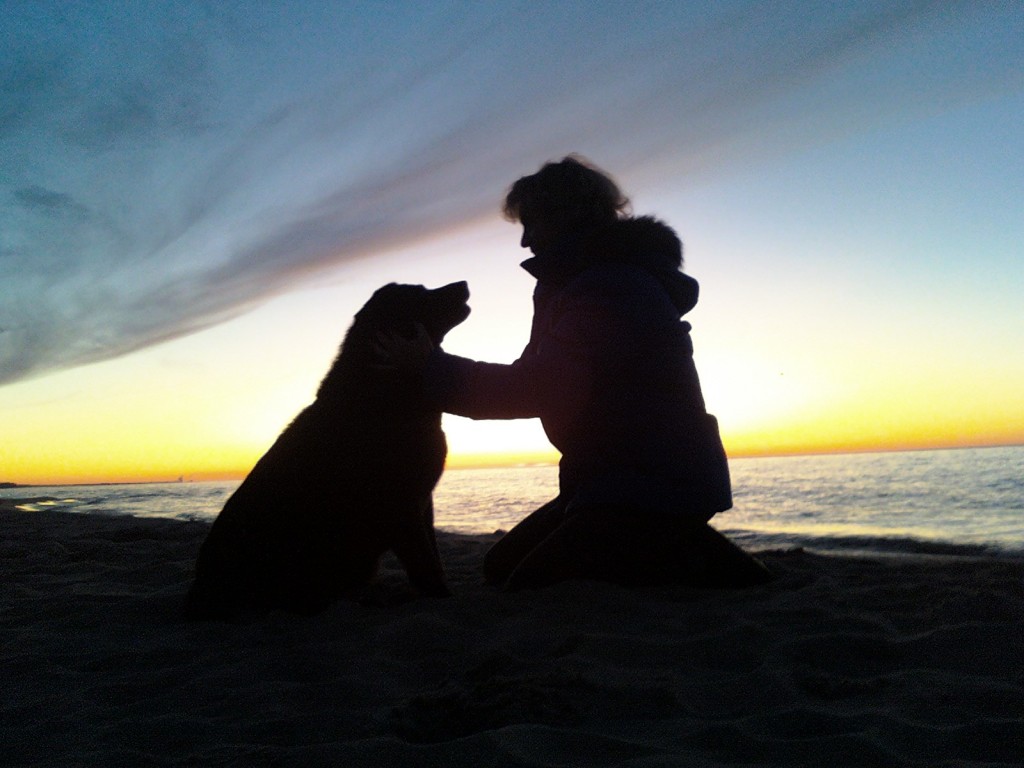Some fathers are gifted to relate well to babies and young children. Others do better with school aged youngsters. Nate was his best with college kids and the years beyond. He grew into an adult relationship with each one of our kids effortlessly as they passed from late teens into twenty-somethings and older.
Every Sunday afternoon, Nate’s main activity was to write to each one of his children who lived away from home, whether that was in college, at camp, on a mission trip or adult kids living on their own. His “letters” were written on simple index cards, sometimes 3 x 5, sometimes 4 x 6, in his often illegible penmanship. Sometimes he wrote in bullet points, and the kids joked about how much information he could pack onto one card. All of them saved these cards.

When he wrote to the kids, he often summarized our week at home but other times would challenge them at a deeper level or commiserate with their current problems. Sometimes he quoted a verse or two, and many times he’d make a point of telling them how much he loved them.
When Nate learned he had terminal cancer, one of the things he wanted to do before he died was write out one last card for each of the kids. His goal was to meet with them individually to give them the card and also give them each an opportunity to clear the air, in case there were any issues they wanted to discuss with him. He was ready for anything, including possible criticisms, and wanted to apologize if any of them had something bothering them from the past. He told me he wanted to express fatherly love for each one and then would deliver his last card.
His pancreatic cancer was, as one of my friends put it, a “damnable cancer.” It raced through his body like a million bolts of lightning, missing nothing in its assault. And the sad truth was, Nate ran out of time to do everything he wanted. Once he’d told me about his goal to meet with each of the seven kids and have a card ready for them, I encouraged him to do one card each day after we spent time talking about that particular son or daughter.
He had only six weeks total, although we didn’t know that then, and a couple of weeks slipped by as we were consumed with radiation, separate doctor appointments and endless tests. But not one day went by when he didn’t say, “I hope I can work on the cards today.” By the third week, he was worn out, and we could both see he might run out of time if he didn’t get it done soon. It was becoming difficult to write, and when he was exhausted, it was hard to concentrate.
At that point, he asked if he could dictate the cards to me while I typed on the computer. We tried to complete one each day in this way, climbing in the car and leaving the commotion at home if necessary, in order to get them done.
We did finish them, but by that time, Nate’s health had deteriorated so rapidly, we both feared the one-on-one meetings might not happen. There were many one-on-one conversations in bits and pieces, but the planned meetings to deliver the cards did not take place.
Tonight after dinner I passed out the completed cards. The author has been gone for 12 days. As I watched the kids quietly read them, I started to cry, wishing Nate had not died. We’d had an animated family day, and I just couldn’t believe he hadn’t been a part of it.
Reading Nate’s last pointed communication to them, some of the kids began to cry, too. It was a powerful few moments as the fire crackled and nobody spoke. I’ll probably never know the variety of emotions that rushed through each of their minds, but in a way, the most important part of the evening was that Nate was indeed very much present, through his words. As always, the cards were encouraging, complimenting, challenging and loving.
“But now faith, hope, love, abide these three; but the greatest of these is love.” (1 Corinthians 13-13)

